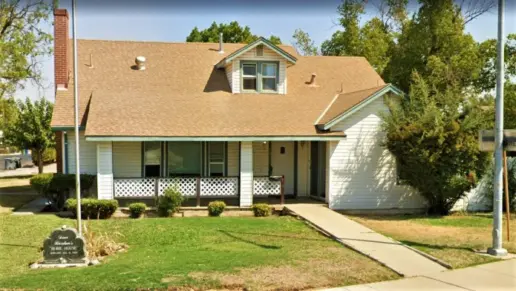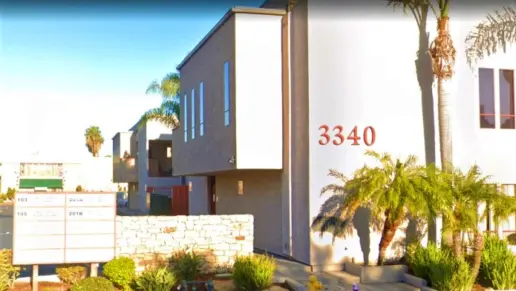About Alta Bates Summit Medical Center – Behavioral Health
Alta Bates Summit Medical Center – Behavioral Health is a mental health care facility and alcohol and drug rehab for youth and adults in Berkeley, California. They provide medical detox, inpatient treatment, a partial hospitalization program (PHP), an intensive outpatient program (IOP), general outpatient treatment (OP), dual diagnosis care, and aftercare services. The center has specialized programs for seniors, women, adolescents, veterans, and children.
Clients undergoing detox typically stay at the center for 3-5 days. Clients are placed under the care of a multidisciplinary team, which can include doctors, therapists, and nurses. Clients may be prescribed FDA-approved medications to ease withdrawal symptoms and prevent complications.
Their inpatient program consists of a customized individual treatment strategy. Clients undergo an evaluation and are assigned a case manager. After a one-week intake process, programs can include individual and group counseling, family therapy, and recovery education. Evidence-based complementary therapies, including mindfulness training and recreational therapy, are available.
At Alta Bates Summit Medical Center, PHP treatment takes place five times per week. Programs are age-specific, such as adolescents, young adults, or older adults. The center uses dialectical behavioral therapy (DBT) and cognitive behavioral therapy (CBT) to manage symptoms and triggers. Programs include daily living and recovery skills development, group and individual therapy and counseling, and relationship management.
The intensive outpatient program is similar to that of partial hospitalization treatment. However, clients attend sessions only three or four times per week.
Clients in general outpatient care participate in group and individual therapy and counseling, family and Veteran support services, periodic evaluations and interventions, and continual staff support.
Clients in aftercare receive continual support from their case managers. Additional referrals may be provided for outside specialized care. The Alta Bates Summit Medical Center provides 24/7 crisis and emergency assistance, including a hotline for Veterans.
The Alta Bates Summit Medical Center is accredited by The Joint Commission.
The Alta Bates Summit Medical Center is in-network with Aetna, Blue Cross Blue Shield, Cigna, Humana, Magellan Health Services, Pacific Health Alliance, TRICARE, United Healthcare, Valley Health Plan, and many others. The center also accepts Medicare. Please check with your insurance provider for specific details concerning out-of-network coverage.
Rehab Score
Gallery
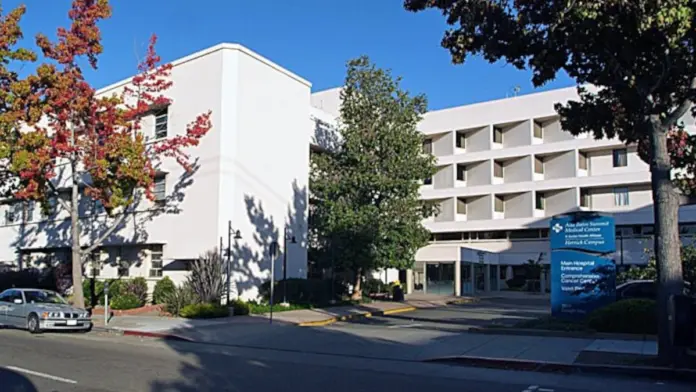
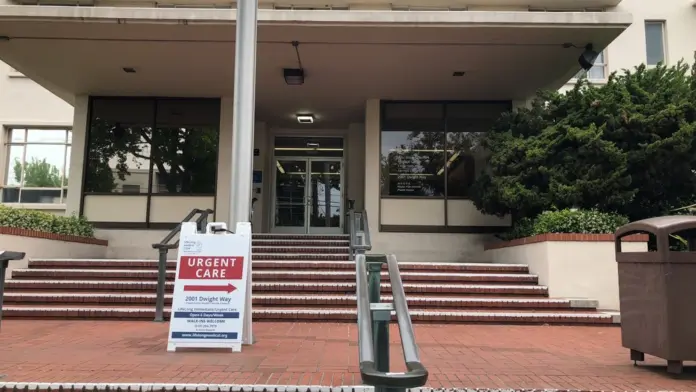
Location
Other Forms of Payment
Private insurance refers to any kind of healthcare coverage that isn't from the state or federal government. This includes individual and family plans offered by an employer or purchased from the Insurance Marketplace. Every plan will have different requirements and out of pocket costs so be sure to get the full details before you start treatment.
Self-pay involves paying for treatment out of your own pocket. You can use savings or credit, get a personal loan, or receive help from family and friends to fund your treatment. If you don't have insurance or your insurance plan doesn't cover a specific program, self-pay can help ensure you still get the care you need.
Financial aid can take many forms. Centers may have grants or scholarships available to clients who meet eligibility requirements. Programs that receive SAMHSA grants may have financial aid available for those who need treatment as well. Grants and scholarships can help you pai for treatment without having to repay.
Medicare is a federal program that provides health insurance for those 65 and older. It also serves people under 65 with chronic and disabling health challenges. To use Medicare for addiction treatment you need to find a program that accepts Medicare and is in network with your plan. Out of pocket costs and preauthorization requirements vary, so always check with your provider.
Medicaid is a state based program that helps lower-income individuals and families pay for healthcare. Medicaid covers addiction treatment so those enrolled can use their coverage to pay for rehab. When a program accepts Medicaid the client often pays very little or nothing out of their own pocket.
Military members, veterans, and eligible dependents have access to specific insurance programs that help them get the care they need. TRICARE and VA insurance can help you access low cost or no cost addiction and mental health treatment. Programs that accept military insurance often have targeted treatment focused on the unique challenges military members, veterans, and their families face.
Addiction Treatments
Levels of Care
Treatments
Many of those suffering from addiction also suffer from mental or emotional illnesses like schizophrenia, bipolar disorder, depression, or anxiety disorders. Rehab and other substance abuse facilities treating those with a dual diagnosis or co-occurring disorder administer psychiatric treatment to address the person's mental health issue in addition to drug and alcohol rehabilitation.
Mental health rehabs focus on helping individuals recover from mental illnesses like bipolar disorder, clinical depression, anxiety disorders, schizophrenia, and more. Mental health professionals at these facilities are trained to understand and treat mental health issues, both in individual and group settings.
Clinical Services
Cognitive Behavioral Therapy (CBT) is a therapy modality that focuses on the relationship between one's thoughts, feelings, and behaviors. It is used to establish and allow for healthy responses to thoughts and feelings (instead of unhealthy responses, like using drugs or alcohol). CBT has been proven effective for recovering addicts of all kinds, and is used to strengthen a patient's own self-awareness and ability to self-regulate. CBT allows individuals to monitor their own emotional state, become more adept at communicating with others, and manage stress without needing to engage in substance abuse.
Whether a marriage or other committed relationship, an intimate partnership is one of the most important aspects of a person's life. Drug and alcohol addiction affects both members of a couple in deep and meaningful ways, as does rehab and recovery. Couples therapy and other couples-focused treatment programs are significant parts of exploring triggers of addiction, as well as learning how to build healthy patterns to support ongoing sobriety.
Dialectical Behavior Therapy (DBT) is a modified form of Cognitive Behavioral Therapy (CBT), a treatment designed to help people understand and ultimately affect the relationship between their thoughts, feelings, and behaviors. DBT is often used for individuals who struggle with self-harm behaviors, such as self-mutilation (cutting) and suicidal thoughts, urges, or attempts. It has been proven clinically effective for those who struggle with out-of-control emotions and mental health illnesses like Borderline Personality Disorder.
Experiential therapy is a form of therapy in which clients are encouraged to surface and work through subconscious issues by engaging in real-time experiences. Experiential therapy departs from traditional talk therapy by involving the body, and having clients engage in activities, movements, and physical and emotional expression. This can involve role-play or using props (which can include other people). Experiential therapy can help people process trauma, memories, and emotion quickly, deeply, and in a lasting fashion, leading to substantial and impactful healing.
Research clearly demonstrates that recovery is far more successful and sustainable when loved ones like family members participate in rehab and substance abuse treatment. Genetic factors may be at play when it comes to drug and alcohol addiction, as well as mental health issues. Family dynamics often play a critical role in addiction triggers, and if properly educated, family members can be a strong source of support when it comes to rehabilitation.
Group therapy is any therapeutic work that happens in a group (not one-on-one). There are a number of different group therapy modalities, including support groups, experiential therapy, psycho-education, and more. Group therapy involves treatment as well as processing interaction between group members.
In individual therapy, a patient meets one-on-one with a trained psychologist or counselor. Therapy is a pivotal part of effective substance abuse treatment, as it often covers root causes of addiction, including challenges faced by the patient in their social, family, and work/school life.
Nicotine Replacement Therapy (NRT) is a way of getting nicotine into the bloodstream without smoking. It uses products that supply low doses of nicotine to help people stop smoking. The goal of therapy is to cut down on cravings for nicotine and ease the symptoms of nicotine withdrawal.
Nutrition therapy, aka medical nutrition therapy (MNT), is a way of treating physical, emotional, and medical conditions through diet. Specific dietary plans are designed by professional nutritionists or registered dietitians, and patients follow them in order to positively affect their physical and mental health.
Staff
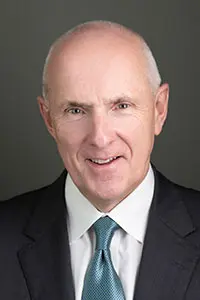
President & CEO

VP & Chief Diversity & Inclusion Officer

Senior VP & Chief Consumer & Brand Officer
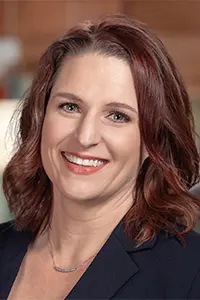
VP & Chief Ethics & Compliance Officer
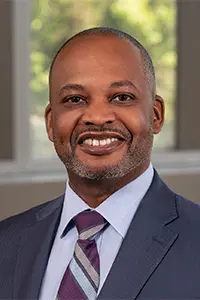
VP & Chief Academic Affairs Officer
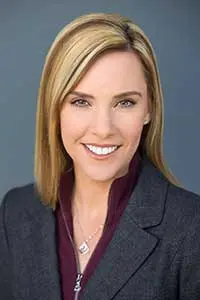
Senior VP & Chief External Affairs Officer

VP & Chief Medical & Quality Officer

Senior VP & CFO
Contact Information
2001 Dwight Way
Ste 4190
Berkeley, CA 94704
